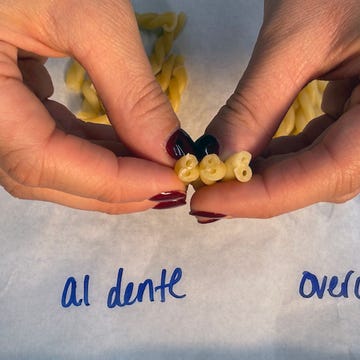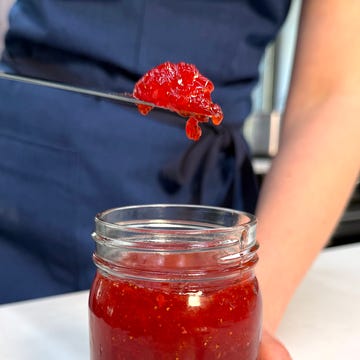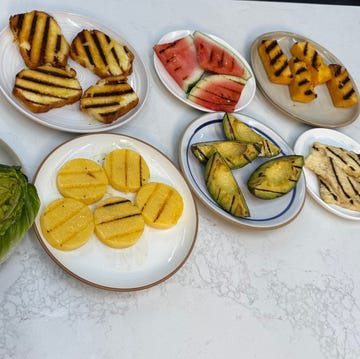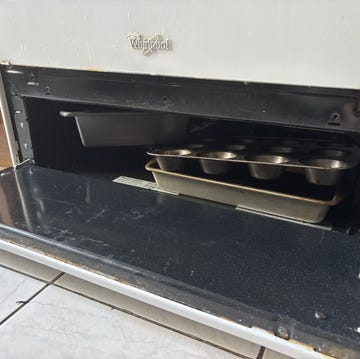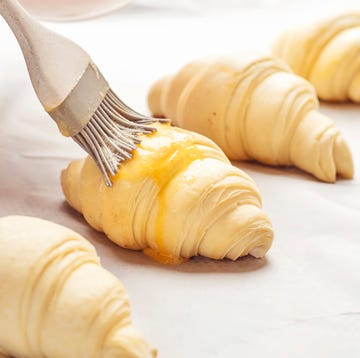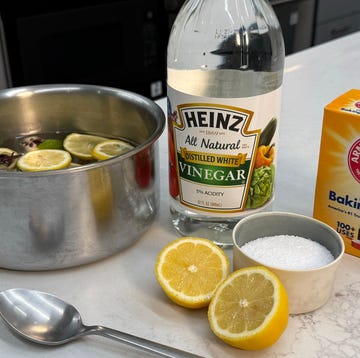Halloween is just around the corner, which means you’re probably hunting down a costume and curating a menu of spooky party snacks. There’s also a good chance you’re planning on carving a jack-o-lantern or two—a process that requires some thoughtful planning. You need to start with the right pumpkin, pick a fun design, and most importantly, figure out what to do with all those seeds.
Warm roasted pumpkin seeds are the perfect way to celebrate Halloween. And regardless if you season them with cinnamon sugar, rosemary and parmesan, or buffalo ranch, it’s hard to stop at just a handful. Overindulging in some pumpkin seeds is a common post-carving occurrence, but is it also an unhealthy one?
We consulted dietitians and nutritionists to unpack everything you need to know about pumpkin seeds. So the next time you decide to snack, you know how they can contribute to a healthy diet.
What Are The Nutrition Benefits Of Pumpkin Seeds?
Like with many other types of seeds, pumpkin seeds pack a lot of nutrients into a small package. “Pumpkin seeds are tiny but mighty,” says Carolina Schneider, MS, RD, in-house nutritionist at Daily Harvest. “They are rich in protein, healthy fats, and essential minerals.” A single one-ounce serving offers between seven and eight grams of plant-based protein.
Pumpkin seeds also offer multiple micronutrients that can contribute to important functions in the body. Magnesium is one particularly valuable mineral found in each tiny seed—one that nutritionist Dr. Daryl Gioffre says is often lacking in American diets. “By getting plenty of magnesium, you’re going to have more energy, better rest, stabilized mood and mental health, and a better metabolism, which all contributes to your overall energy level,” he adds.
You can also find significant amounts of zinc, which supports your immune system, regulates insulin in your body, and can even reduce the levels of sebum in your skin (which can help with acne).
What Are The Health Risks Associated With Eating Pumpkin Seeds?
Pumpkin seeds have a lot to offer your diet, but that doesn’t necessarily mean you should clear an entire bag in one sitting. Health and nutrition experts stress the importance of moderation when it comes to eating your favorite foods—and pumpkin seeds are no exception. A one ounce serving clocks in at around a quarter cup. If you exceed that serving size, you risk a few adverse effects.
These tiny seeds are nutrient dense, but Schneider says they’re also calorie-dense at 160 calories per serving. Many of those calories come from fat, so she warns that “overconsumption might contribute to digestive discomfort or stomach upset, especially for people who have fat malabsorption issues.”
Kristen Lorenz, RD, of KLL Nutrition says that roasting your own seeds at home also presents another important consideration: fiber. “The shells pack nearly three times more fiber—5.2 grams per serving compared to 1.8 grams in shelled seeds,” she says. “While fiber is great for digestion, a sudden spike can cause bloating or constipation, especially if you’re not used to it.”
Both Schneider and Lorenz also warn about sodium levels (especially if you’re buying pre-roasted pumpkin seeds from the supermarket). “Salted varieties can be high in sodium, which is important to watch, especially for those with high blood pressure or anyone limiting salt intake,” Schneider says.




